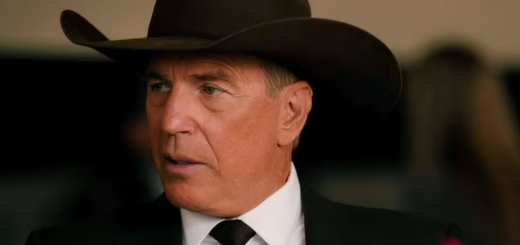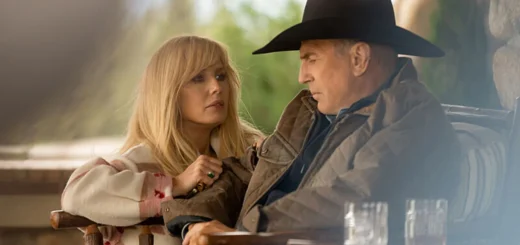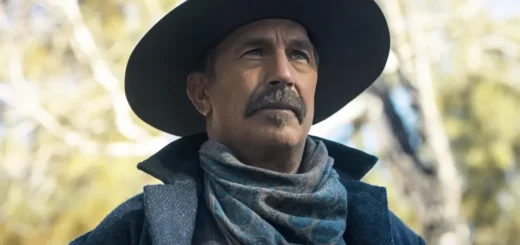Will Kevin Costner’s Ambitious Epic ‘Horizon’ Revitalize the Western Genre or Just Drain His Wallet?
As a Midwestern suburban kid born during the Reagan era, I grew up far removed from cowboys, covered wagons, and the open trail. My only encounters with horses were the coin-operated mechanical ones outside grocery stores. In every meaningful way, I was a complete greenhorn.
Still, I found myself drawn to the Western genre from an early age. Initially, my tastes were quite basic; I loved lighthearted Western comedies like Three Amigos! and City Slickers. Even these films captured some essence of the genre: the expansive landscapes, the freedom of a rider, and the rugged charm of actors like Jack Palance. Later, I discovered the works of John Ford, Howard Hawks, and Clint Eastwood, which offered modern audiences a connection to the classic Western heroes. At 16, I was particularly struck by Ford’s Stagecoach, where the first close-up of John Wayne as the Ringo Kid made me feel a deep connection to the American narrative. That was the kind of film that inspired a youthful swagger and made me start calling everyone “pardner.”
I share this background to illustrate the lasting impact the Western genre can have on even the most urban viewers. So, despite its disappointing box-office performance, I bought a ticket last weekend for Kevin Costner’s Horizon: An American Saga — Chapter 1. The theater was mostly empty, but as I watched this three-hour film, my heart was full.
True big-screen Westerns have become exceedingly rare. I find self-aware postmodern takes like The Hateful Eight or the remake of True Grit too self-referential to fully count. This leaves Costner, committed to a dying genre, in a precarious position. I’m not a fan of his Oscar-winning Dances with Wolves, which Pauline Kael aptly described as “a kid’s daydream of being an Indian.” My feelings about Open Range and Yellowstone are lukewarm at best. Nevertheless, Costner is willing to champion this fading art form, reportedly dipping into his own finances to create Horizon, which was intended as a sprawling epic. While Chapter 2 is complete and set for release, the commercial failure of Chapter 1 may force Costner to reconsider future installments.
As for the film itself, it is a sprawling tale of the hardships faced by American settlers trying to establish a town by an Apache river crossing during the Civil War era. The story unfolds with pioneers encountering Apache tribes, leading to the rise and fall of towns. We meet the Kittredge family, whose members become victims of an Apache attack: Father (Tim Guinee) and son (Hayes Costner) are killed, while wife (Sienna Miller) and daughter (Georgia MacPhail) survive. There’s a gripping sequence where Miller and MacPhail hide in a tunnel during the assault, their only air coming from a shotgun barrel peeking above ground—reminiscent of the Indian attack in The Searchers, but longer and more intense.
While The Searchers tells a tight, focused story, Horizon resembles a cinematic novel. The surviving Kittredges are relocated to a Union Army camp, introducing a cast of new characters, including the compassionate Sgt. Major Thomas Riordan (Michael Rooker) and the commanding Col. Albert Houghton (Danny Huston). Then we meet Hayes Ellison, a wandering cowboy played by Costner, who makes a striking entrance reminiscent of Wayne in Stagecoach. Hayes connects with Marigold (Abbey Lee), a prostitute entangled in a vendetta involving the Sykeses family.
The film’s commercial failure can partly be attributed to modern audiences’ discomfort with its many characters, events, and subplots, which can be overwhelming in a single feature-length film as opposed to a series on Netflix. Costner’s direction and writing sometimes struggle to balance these elements, resulting in stretches that feel dull or confusing.
Yet I found myself loving the film. Its complexities contribute to a unique charm: the confusion adds an abstract quality that enriches the experience. Horizon is a series of vivid Western sights and sounds: an old-timer with a harmonica, a heavyset woman sweeping her porch, bullets being loaded, golden-tipped birch trees, and sharply dressed Union officers. Visually and sonically, it’s captivating. At some point, it’s best to let go of trying to follow the narrative and simply revel in the beauty of each individual scene.


